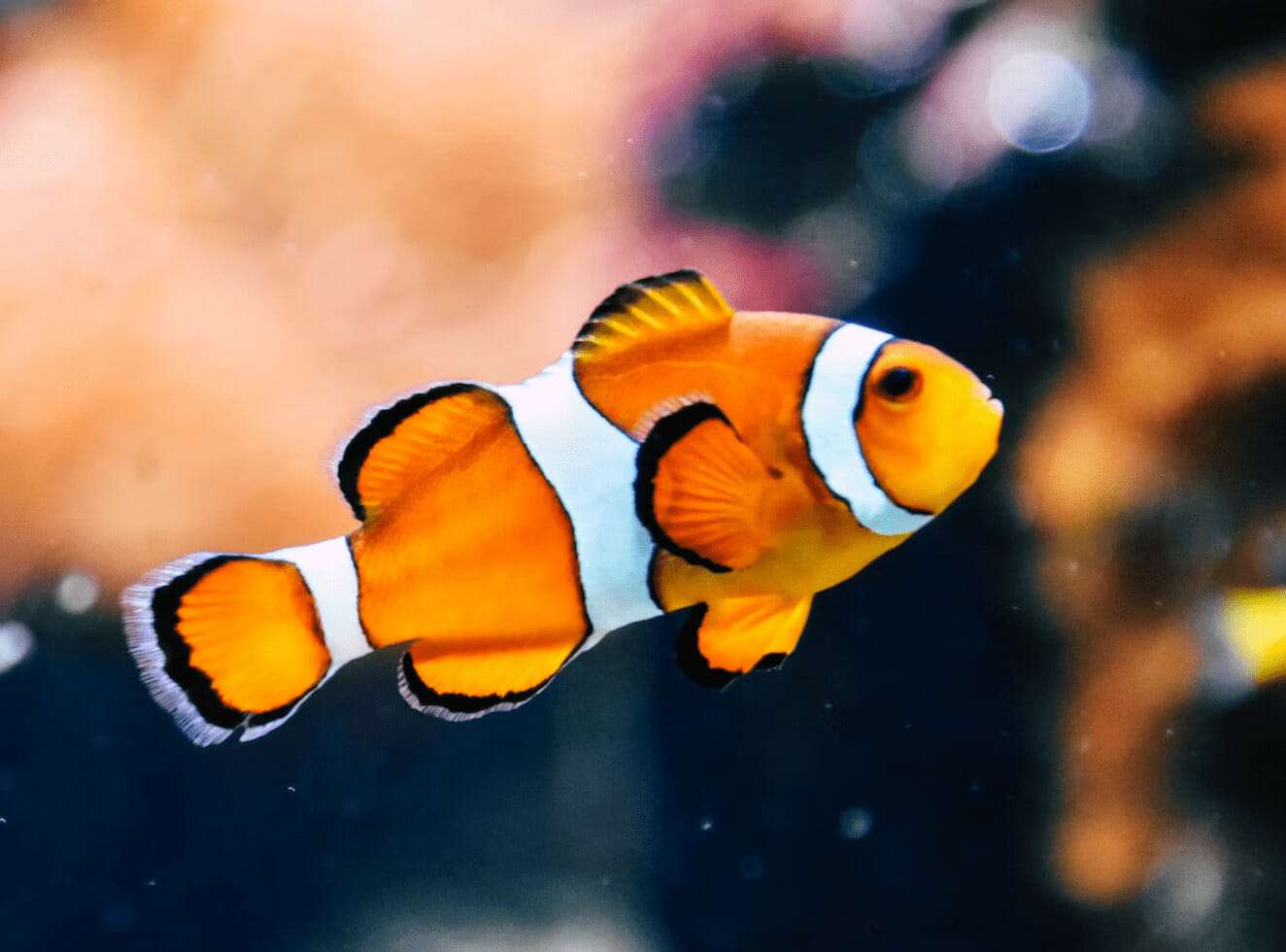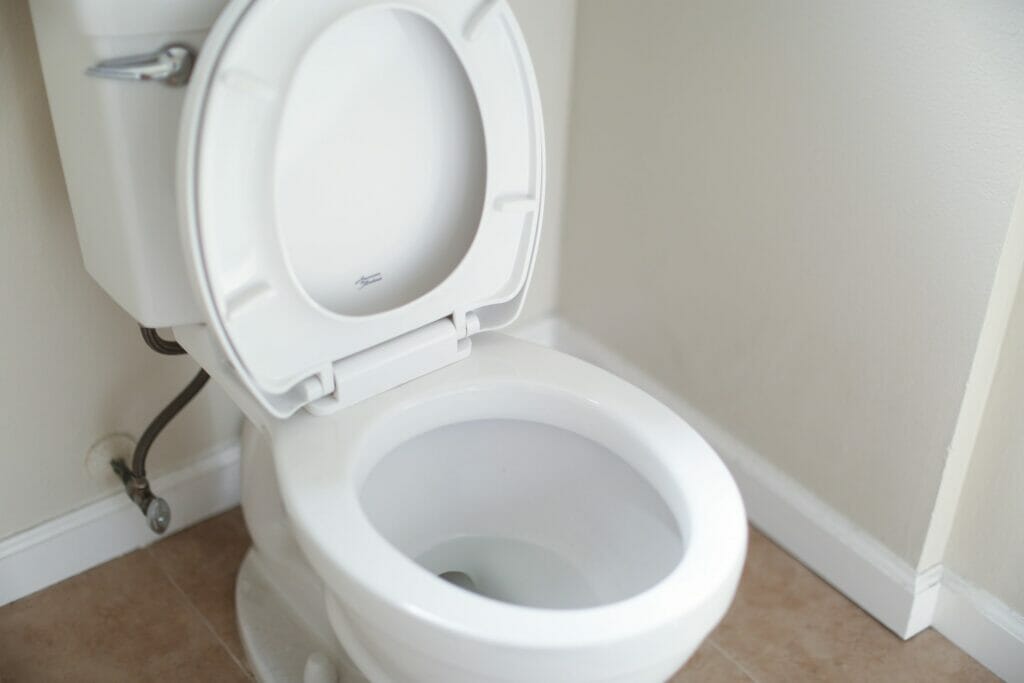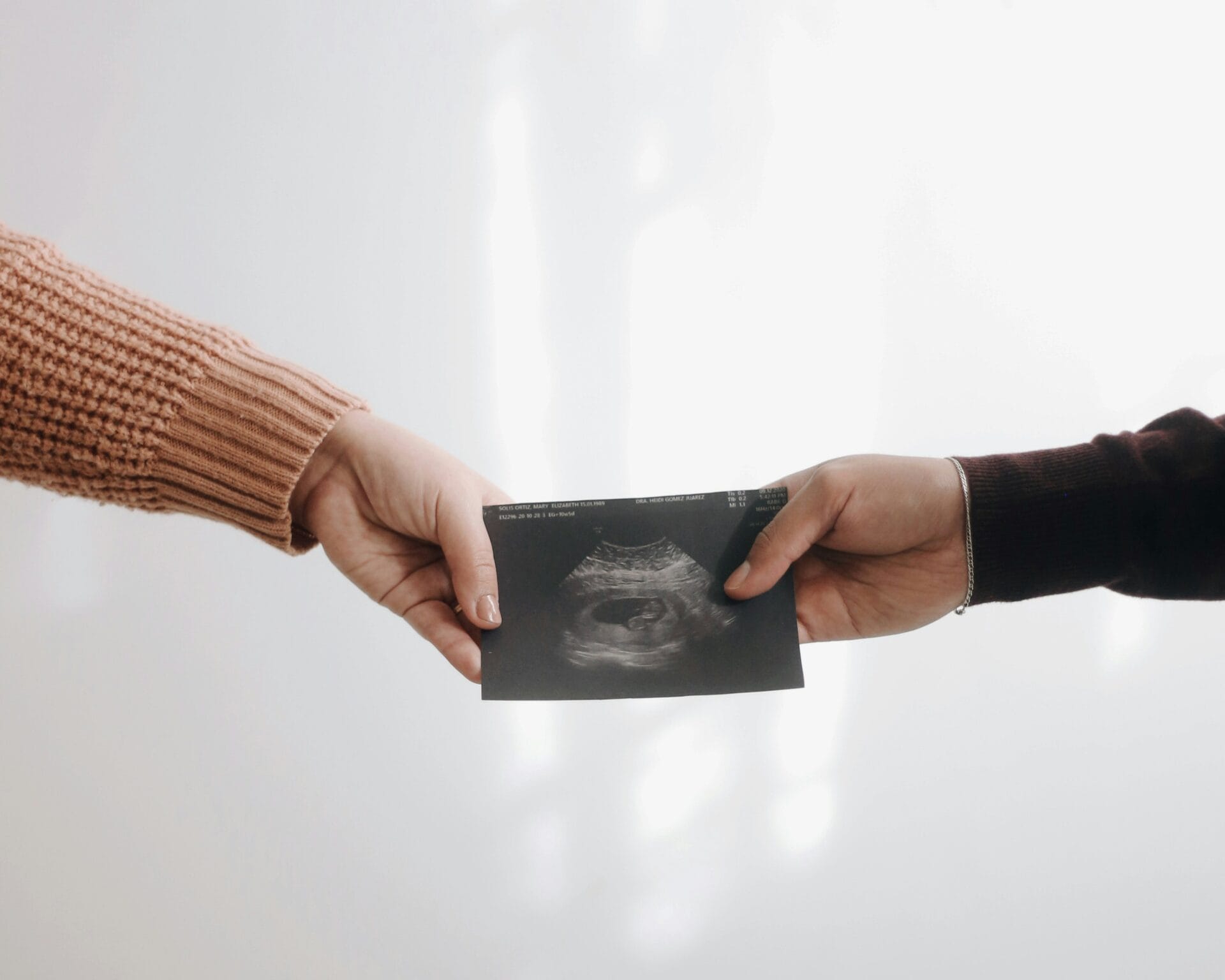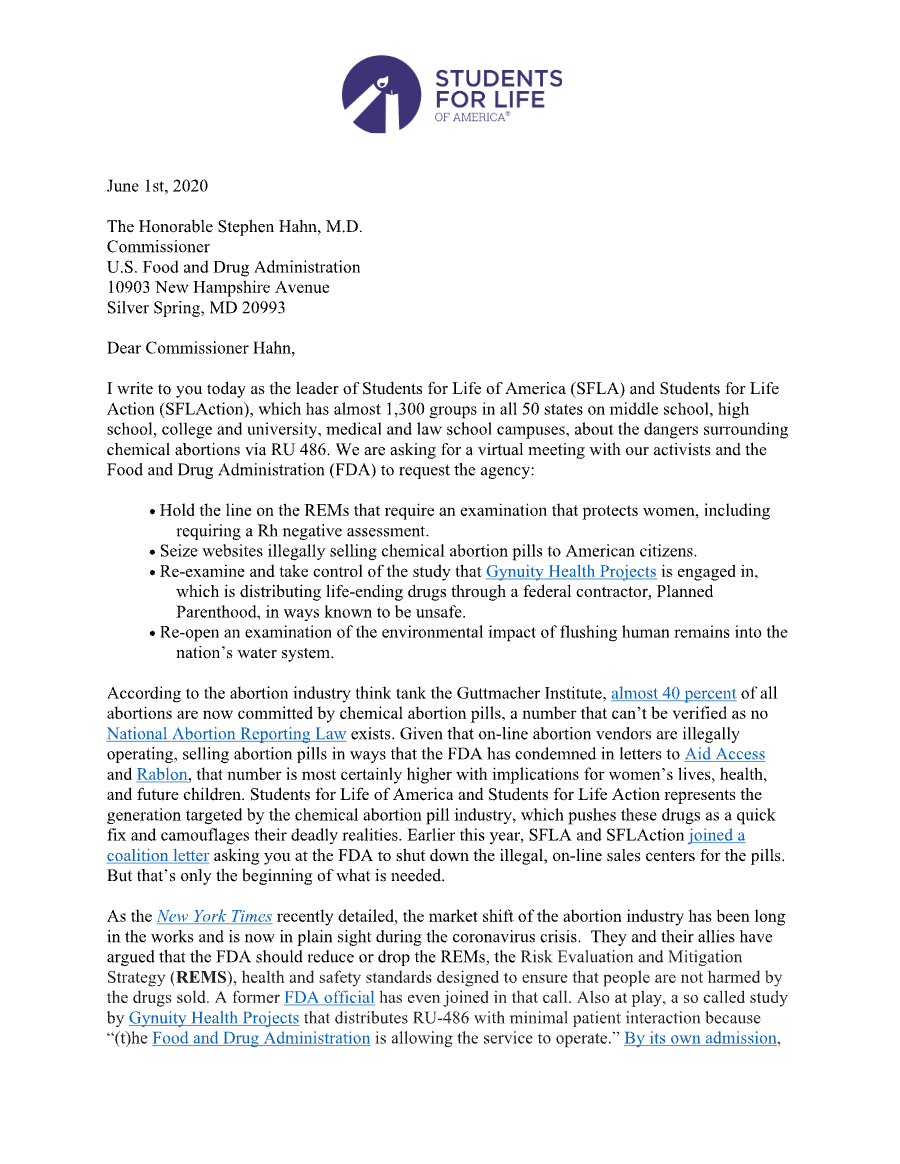

GUEST POST: In recent years, we have seen the abortion industry’s push for “self-managed” abortions. Also called “DIY” or “at-home” abortions, these are procedures committed using Chemical Abortion Pills without an abortionist. Increasingly, the abortion industry is marketing these types of abortions as a benefit for women and as a way of skirting strong pro-life laws. Students for Life of America has been calling attention to this “death by mail” scheme and sounding the alarm on the dangers of the Chemical Abortion Pill.
Abortion businesses like Planned Parenthood claim that a chemical abortion “is similar to a miscarriage” (it’s not), and suggest that it’s a great that women can abort their babies “at home or in another comfortable place.” The reality is that the Chemical Abortion Pill has ended the lives of more than 5.6 million babies since the drugs went on the market in 2000. In that time, at least 28 women lost their lives due to the Chemical Abortion Pill, and countless women have been traumatized by delivering their dead babies alone on the toilet.

Students for Life of America has another question about the damage of the Chemical Abortion Pill: What is it doing to our water?
If we shouldn’t be flushing fish, why are we flushing babies?
Resources about protecting our wastewater management systems list common items that should not be flushed. When contaminants and objects that do not disintegrate are flushed, they can cause catastrophic damage in city sewer lines and water treatment plants. Guidelines for what not to flush include dead fish.
It’s an iconic image (and one that we see in Disney’s Nemo): flushing the family goldfish down the toilet when it has gone to fish heaven. Fish bodies do not readily break down and they can contribute to wreaking havoc on the sewer system.

When mothers are sent Chemical Abortion Pills by mail and take them without supervision, they deliver the dead baby on their own, often at home. Many mothers are encouraged to flush the baby’s body down the toilet. After years of being told the first trimester of pregnancy has only “pregnancy tissue,” people might not understand the cause for concern.
Abortion business Planned Parenthood’s only warning about using Chemical Abortion Pills after 11 weeks is “there’s a bigger chance of stronger bleeding or cramps.” There’s a bigger chance of those things, because the baby is noticeably larger. By 11 weeks, a preborn baby with fingers and toes is the size of a large strawberry or a lime. If we should worry about a little fish getting flushed, why is the abortion industry telling women to manage their own abortions at home and flush the baby’s body?
Pro-lifers have uncovered grotesque practices in the abortion industry, including grinding baby bodies in garbage disposals and sending them into the public sewer system. A 2016 report from Charlotte Lozier found that in some states this abuse of human remains and strain on the sewer system was technically legal at the time, so abortionists faced no consequences. Now, abortion business don’t even need to deal with the bodies as they send lethal pills by mail and leave mothers to deal with the bodies.

What about chemical contamination?
In addition to the bodies of babies killed in abortion, the increase in drug-tainted blood and human tissue in the public sewer systems may affect our groundwater. The Chemical Abortion Pill is a clinical abortion agent and a potential endocrine disruptor. Student for Life of America has previously noted the lack of environmental studies prior to the Food and Drug Administration’s approval of the Chemical Abortion Pill. With these potent substances increasingly entering city sewer systems as radical abortion businesses promote mail-order abortion, what are the environmental effects?
State agencies are warning people to examine the chemical contents of their shampoo, but why are concerned environmentalists not addressing the growing problem of Chemical Abortion Pills and their effect on public water? Without evaluation, the environmental impact of these potent chemicals and how they will affect the future water supply is not known.

As the abortion industry increases the new “back alley” abortion by shipping Chemical Abortion Pills to states with strong pro-life protections, unmarked pills are more likely to cause harm and potentially wind up getting flushed, a source of serious contamination. The federal government has a National Prescription Drug Take Back program, but if pills are being sold clandestinely, unused pills are all the more unlikely to be disposed of properly.
Red Bag Medical Waste Regulation
Students for Life of America has launched a petition and nation-wide awareness campaign calling for Red Bag Medical Waste regulation of the increasing business of Chemical Abortion Pills. Dealing with the dead bodies has always been a challenge for the abortion industry. There are horror stories of babies’ bodies ground up in garbage disposals, frozen in bags awaiting retrieval, and stashed away in old cars. With Chemical Abortion Pills sent by mail, abortionists have found a clever way to outsource the problem of what to do with the bodies.

Red Bag Medical Waste regulations would require the proper disposal of the baby’s body and any other human tissue. This would not only avoid potential damage to sewer systems and water treatment facilities but also protect the environment from potential chemical contamination.
Whether you want to allow the killing of preborn babies or not — and we emphatically do not — we should all be able to agree that we need to protect our sewer systems and public water supply.
READ NEXT: See the Video from SFLA President Kristan Hawkins’ Tour that Millions Have Viewed
Share this post
Recent Posts

Abortion Brags from Lily Allen & Hat from Cynthia Nixon Enrage Even Pro-Choice Americans. Can the Pro-Life Generation Take Some Credit?
11 Jul 2025
Young Mom Prayed for God’s Hand on Her Child – At Her Ultrasound Appointment, THIS Happened
11 Jul 2025
Letter to the FDA Regarding Chemical Abortion Drugs June 2020
10 Jul 2025
